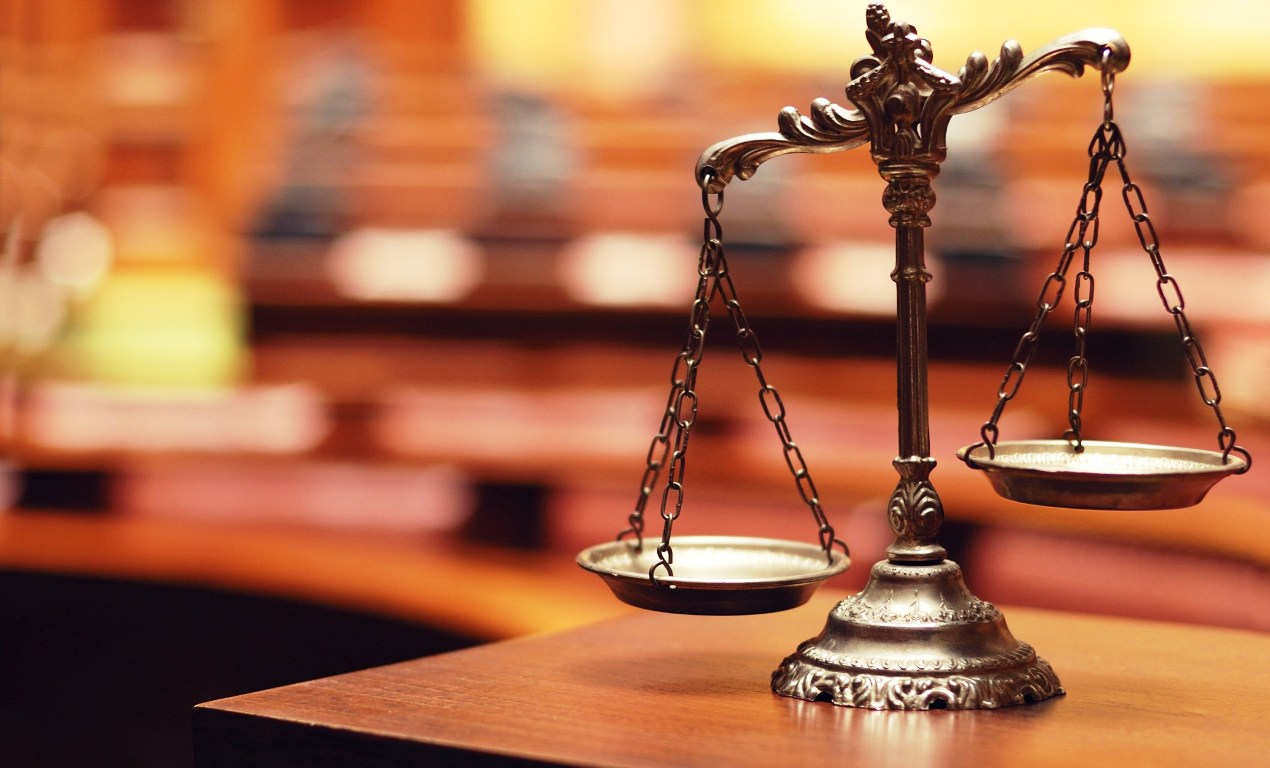by Mudasir Mushtaq Khan
Social justice should be a guiding principle in governance and policymaking, with governments striving to integrate it into every decision. The pursuit of a welfare state and constitutional ideals hinges on the state’s commitment to implementing social justice with a strong moral sense.

The Oxford English Dictionary defines justice as the “administration of law or equity.” This concept, essential to civilisation and society, is deeply rooted in Indian civilisation. Originating from the French word Jostise, meaning righteousness, equity, and the administration of law, justice entails the correct application of the law, rejecting arbitrariness. A society’s foundation is incomplete without the presence of justice, a cornerstone of any nation.
The Constitution of India, adopted by the constituent assembly on November 26, 1949, and enacted on January 26, 1950, declares India a Sovereign Socialist, Secular, Democratic Republic committed to Justice, Equality, and Liberty for its people. The preamble serves as a concise introductory statement, outlining the document’s ideals and objectives, deriving its authority from the people. At independence, the framers of the Constitution were driven by a profound sense of social equality and justice, reflected in its provisions, shaping India into a social welfare state.
According to the United Nations, social justice encompasses the fair and compassionate distribution of economic growth’s benefits. Put simply, it involves ensuring a fair and equitable allocation of resources, opportunities, and privileges within society.
Embedded within the Constitution, the concept of social justice encompasses diverse principles essential for the orderly growth and development of every citizen’s personality. Social justice is thus an integral aspect of justice in its broadest sense, with the term socialist deliberately included in the Preamble.
In the case of Excel Wear v. Union of India on September 29, 1978, the Supreme Court underscored the significance of the term socialist in the Preamble. The court indicated that while this addition might incline towards nationalization and state ownership of industries, it should not disregard the interests of private owners entirely if private ownership exists alongside principles of socialism and social justice.
Further elaborating on the objectives of a socialist state, the Supreme Court, in DS Nakara v. Union of India & others on December 17, 1982, stated that the primary aim of such a state is to eradicate inequality in income, status, and standards of living. It emphasized providing a decent standard of living, encompassing security from birth to death, economic equality, and fair income distribution, drawing from both Marxist and Gandhian socialism. The transition from a feudal society to a socialist welfare society represents a lengthy progression, with each state action aimed at advancing society closer to this goal.
The term justice in the Preamble encompasses social, economic, and political dimensions, safeguarded through various Fundamental Rights and Directive Principles. Social justice advocates for equal treatment regardless of social factors like caste, colour, religion, or gender, aiming to uplift backward classes (SCs, STs, and OBCs) and women, while economic justice targets the reduction of wealth, income, and property disparities.
The combination of social and economic justice constitutes distributive justice. Political justice demands equal political rights and participation for all citizens, ensuring a fair voice in governance. The term equality within the Preamble guarantees equal status and opportunity for all citizens, covering civil, political, and economic dimensions, as ensured by various provisions in the chapter on Fundamental Rights.
The Constitution enshrines several provisions to uphold equality and political fairness:
(a) Equality before the Law (Article 14).
(b) Prohibition of discrimination based on religion, race, caste, sex, or place of birth (Article 15).
(c) Equality of opportunity in public employment (Article 16).
(d) Abolition of untouchability (Article 17).
(e) Abolition of titles (Article 18).
Two provisions specifically aim to ensure political equality: firstly, no person can be excluded from electoral rolls based on religion, race, caste, or sex (Article 325), and secondly, elections to the Lok Sabha and state assemblies are conducted through adult suffrage (Article 326).
Articles 36 to 51 incorporate directive principles of State policy, which guide governance but are not legally enforceable (Article 37). These principles, outlined in Part IV of the Constitution, span socialist, Gandhian, and liberal intellectual ideals, aiming to establish a welfare state and promote social and economic democracy.
The Supreme Court, in Minerva Mills & others, and Union of India & Others on July 31, 1980, emphasized the significance of directive principles, noting their pivotal role in achieving the Constitution’s objectives. The Court stressed the balance between fundamental rights (Part III) and directive principles (Part IV), stating that undermining one would disrupt the Constitution’s harmony and essential structure. Social justice, a dynamic mechanism, seeks to alleviate the suffering of marginalized communities and ensure their equality and dignity, reflecting the legitimate aspirations of all segments of society.
Reaffirming the constitutional significance of social justice, the Supreme Court, in Nagaraj & Others vs Union of India & Others on October 19, 2006, noted that amendments upholding the constitutional ideals of ‘justice, social, economic, and political,’ and ‘equality of status’ do not contravene Article 14 or Article 16(1), and hence, do not undermine the Constitution’s basic structure.
Reflecting on the post-independence era, Justice RP Sethi, in Ramon Services Pvt.Ltd. vs Shri Subhash Kapoor & Others on September 10, 1999, observed that social justice has become integral to our legal system, imbuing democracy with meaning and dynamism. He emphasised that achieving the welfare state envisioned in the Constitution necessitates active and concerted efforts in dispensing social justice.
Similarly, in Som Prakash Rekhi v. Union of India on November 14, 2000,Justice Krishna Iyer portrayed social justice as the conscience of the Constitution, with the state serving as the advocate for economic justice. He underscored Indian humanity as the cornerstone sustaining the Constitution, asserting the public sector’s role as a socially responsible employer.
In the landmark case of SR Bommai v. Union of India, the apex court affirmed that social justice and judicial review are fundamental features of the Indian Constitution.
Reaffirming the constitutional significance of social justice, the Supreme Court, in Nagaraj & Others vs Union of India & Others on October 19, 2006, noted that amendments upholding the constitutional ideals of ‘justice, social, economic, and political,’ and ‘equality of status’ do not contravene Article 14 or Article 16(1), and hence, do not undermine the Constitution’s basic structure.
Reflecting on the post-independence era, Justice R.P. Sethi, in Ramon Services Pvt. Ltd. vs Shri Subhash Kapoor & Others on September 10, 1999, observed that social justice has become integral to our legal system, imbuing democracy with meaning and dynamism. He emphasized that achieving the welfare state envisioned in the Constitution necessitates active and concerted efforts in dispensing social justice.
Similarly, in Som Prakash Rekhi v. Union of India on November 14, 2000, Justice Krishna Iyer portrayed social justice as the conscience of the Constitution, with the state serving as the advocate for economic justice. He underscored Indian humanity as the cornerstone sustaining the Constitution, asserting the public sector’s role as a socially responsible employer.
In the landmark case of SR Bommai v. Union of India, the apex court affirmed that social justice and judicial review are fundamental features of the Indian Constitution.
On November 16, 1992, in the case of Indra Sawhney Etc. vs Union of India And Others, the Supreme Court upheld the legality of a 27 per cent reservation for socially and economically backward classes in central services. This form of protective discrimination aims to address longstanding deprivation, constituting a facet of corrective and compensatory justice. It acknowledges that certain segments of society have historically suffered injustice, while others have unjustly benefitted, leading to systemic disparities. The provision of protective discrimination seeks to redress these inequities for those living in disadvantaged circumstances, aiming to strike a balance between equal opportunity and distributive justice.
Our judiciary serves as the guardian of justice, ensuring the fulfilment of the constitutional promise. In People’s Union for Democratic Rights vs Union Of India & Others on September 18, 1982, the apex court asserted that denying minimum wages amounts to a violation of human dignity and constitutes exploitation. The Indian courts have played a pivotal role in advancing social justice, particularly through distributive and compensatory measures, recognizing these principles as complementary rather than contradictory. While the concept of social justice lacks a precise definition, the Supreme Court has affirmed its essential role within the legal framework, shaping it as a guiding force through dynamic judicial pronouncements.
In Harjinder Singh vs Punjab State Warehousing Corp. on January 5, 2010, the Supreme Court emphasized the critical role of judges, particularly those of the highest court, in ensuring the fulfilment of constitutional promises. Failure to actively pursue the realization of these promises undermines the judiciary’s oath to uphold the Constitution, equating to a failure in the court’s conscience.
According to Article 38 of the Constitution, both the State and the judiciary bear a duty to establish a social order conducive to the welfare of the people. Article 38(1) emphasizes the imperative to promote social, economic, and political justice, echoing the sentiments of the preamble.

In conclusion, social justice, as enshrined in the preamble, addresses a broad spectrum of issues, advocating for the equitable treatment of all individuals irrespective of various factors. It is essential for ensuring a meaningful life with peace and dignity for every citizen. Realizing this vision requires systemic and ideological shifts across economic, social, educational, and governmental institutions. Social justice should be a guiding principle in governance and policymaking, with governments striving to integrate it into every decision.
The pursuit of a welfare state and constitutional ideals hinges on the state’s commitment to implementing social justice with a strong moral sense. Achieving this goal necessitates a balanced and effective implementation of policies aligned with the preambular promise of social justice, thereby realizing the dream of a just, fair, and welfare-oriented society.
(The author serves as a Government Law Officer within the Department of Law, Justice & Parliamentary Affairs, Jammu & Kashmir, currently pursuing a Masters in Political Science through the Indira Gandhi National Open University. Ideas are personal.)















